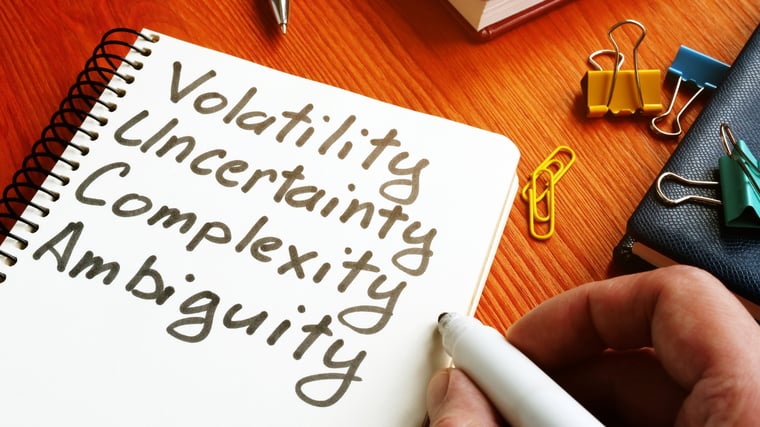Wouldn’t it be nice to live in a world where we agree on everything that matters? Or to work in a conflict-free environment where everyone feels heard and every idea is good? Unfortunately, that’s not the way the world or the workplace works.
Whenever there is a convergence of varying skill sets, perspectives, and experiences, a total agreement is rarely possible. But that’s not always a bad thing. Studies have shown that conflict in the workforce can be beneficial for productivity, relationship-building, and creativity. Still, disagreeing with someone at work is challenging. The good news is that the first step to conquering nerves when conflict arises starts with the individual.
Confidence is the key to successful and productive communication, especially when disagreeing. Do you or your employees need a confidence boost? Here are a few tips to enhance that vital trait, courtesy of Harvard Business Review:
- Reframe self-talk. Rather than saying, “I can’t do this,” or “my manager won’t hear me,” employees must rethink their internal dialogue. Help your team shift towards “I am informed,” “I'm prepared,” or something more active, such as “I love a good challenge.”
- Learn to avoid non-constructive feedback. If the ideas your team presents aren’t helpful or relevant, it’s okay to decline them. Instead, listen for suggestions that relate to the current problem and are logical and helpful.
- Consider how others see you. The person sitting across from you naturally sees you differently than you see yourself, and it is more likely than not they have positive opinions about your knowledge, experience, and skills. You wouldn’t be where you are if you didn’t bring real value to the table. Remember that.
- Create an alter ego. Want to be more confident? Imagine someone you know—or want to know—who remains poised, logical, and professional. You can work to be that person by imagining yourself in their shoes.
Ultimately, self-confidence starts with that: the self. Remember that your or your team’s idea could be the next one to pioneer change in your organization. Confidence is an essential element in preparing to address disagreements at work. Without it, the conversation starts on shaky ground. With it, you can stand solidly with your team, focusing instead on ideas and communication.
Disagreeing without disrespect
Let’s break this down further with an example. Zara is part of a large creative team at her company. Her colleague, Janine, suggested a process change that Zara sees as a roadblock than a path forward. She has a few specific ideas and concerns she’d like to discuss with Janine, but she doesn’t want to create strife among her teammates.
That’s a relatable feeling. But arguing can be good—promoting communication, introducing new ideas, and reconsidering options—if done healthily. Studies show that most workplaces don’t struggle because of the conflict but because of the fear of conflict. In this case, Zara fears conflict. In an online survey conducted by Nate Regier, author of Conflict Without Casualties, 64% of respondents indicated that to avoid conflict, they would compromise rather than argue for their preferred approach. The result? What could be powerful ideas addressing real issues never emerge.
Respectfully Debating Ideas
The good news is that there are steps to take to debate ideas productively—and respectfully. Here are a few from journalist Shane Snow:
- Remember that the goal is not to “win.” To ease tension and increase discourse, recognize that the goal is a healthy debate.
- Recognize that you’re all on the same team. You want to find better solutions—together.
- Keep the conversation professional and specific, and never turn it toward the personal or general. Avoid phrases like “You always ...” or “Your teammates never …” that broadly cast blame.
- Stay focused on the topic at hand. If the conversation shifts toward other topics, acknowledge that and return to the relevant subject.
- Be intellectually humble and acknowledge the good points of others. Never be afraid to admit when you’re wrong.
As a leader, one of your primary goals is to foster a psychologically safe environment where your team can express concerns and challenge ideas without fear of retaliation. When employees feel comfortable expressing disagreement, space is created for ideas, creativity, and results to bloom. In the words of Snow, “The key to breakthrough problem-solving isn’t getting along well. It’s not getting along—well.”
Handling conflict with executives
What if the person you disagree with also happens to be your director? Or the CEO? You may simply agree with their ideas or keep your opinions silent to avoid conflict. It adds another level of stress, doesn’t it? But according to Amy Gallo, contributing editor at Harvard Business Review, it shouldn’t. Disagreement in the workforce is inevitable, after all. The key to successful debate with someone more powerful, Gallo says, is to remember the when, what, and how of approaching differences of opinion:
- When
Gallo suggests avoiding discussing the disagreement immediately as it arises. Instead, wait. The additional time will allow you to research facts, find leaders on the same page as you, and choose the right environment for a private meeting.
- What
What you say during this meeting can make a difference. So, restate the original issue and connect it to a shared goal (such as an improved company culture or DEI initiatives). It’s good practice to ask permission to disagree—ideally, you’d already have a process for handling disagreements when they arise.
- How
To maximize the effectiveness of time and minimize the defensiveness of either party, consider the importance of staying calm and projecting confidence. Doing so will leave room for dialogue.
Disagreeing with your team and executives is an inevitable component of the workplace. Developing a strong sense of self and fostering a space for inclusive feedback will help smooth discord and move the team forward. After all, diversity of thought across the company helps you remain innovative and creative – couldn’t all organizations benefit from that?



![[Guide] Why L&D is the Key to Achieving Your Company Culture Goals](https://blog.blueoceanbrain.com/hs-fs/hubfs/1283373_Images%20-%20BOB_4_012722.png?width=760&name=1283373_Images%20-%20BOB_4_012722.png)
